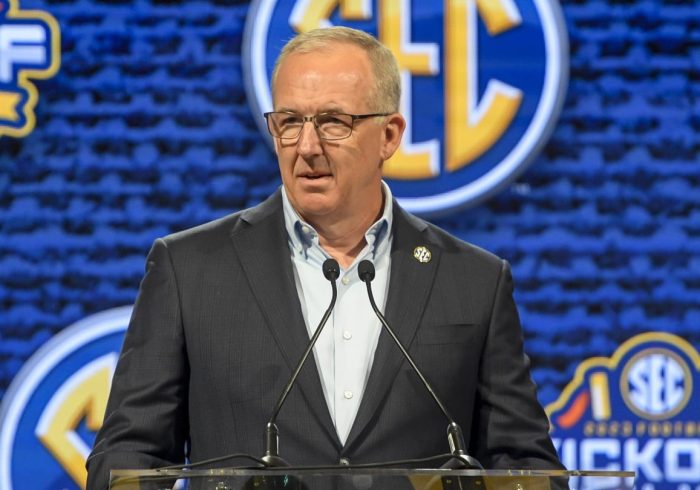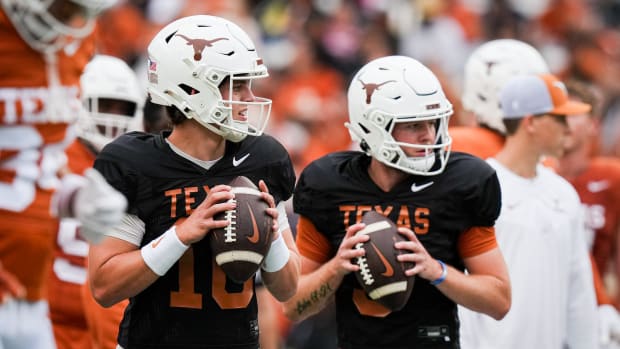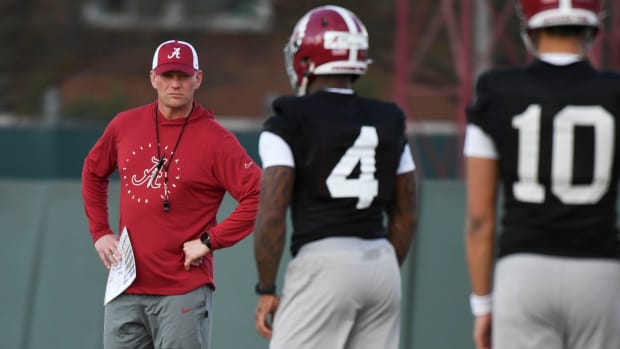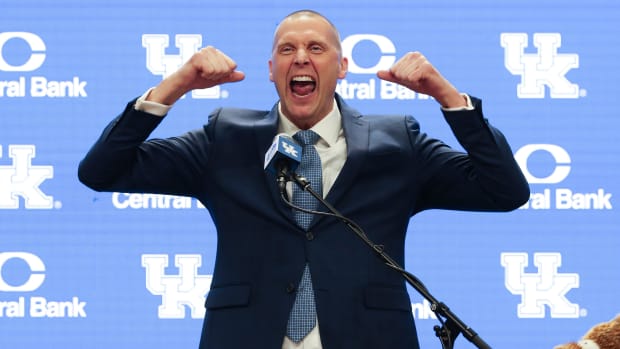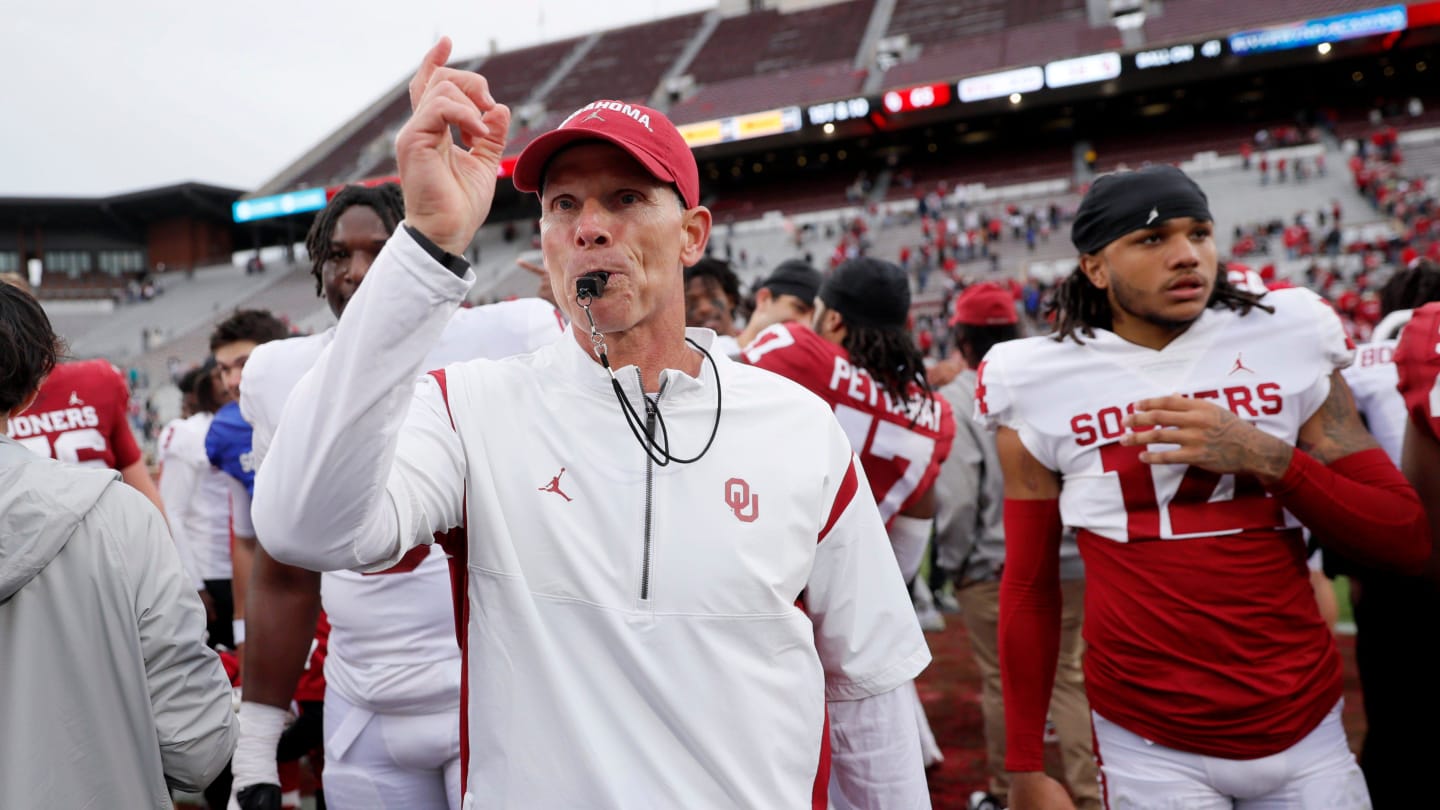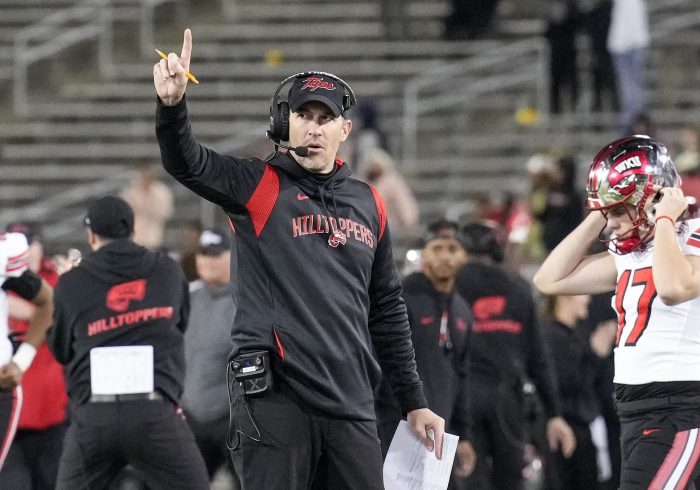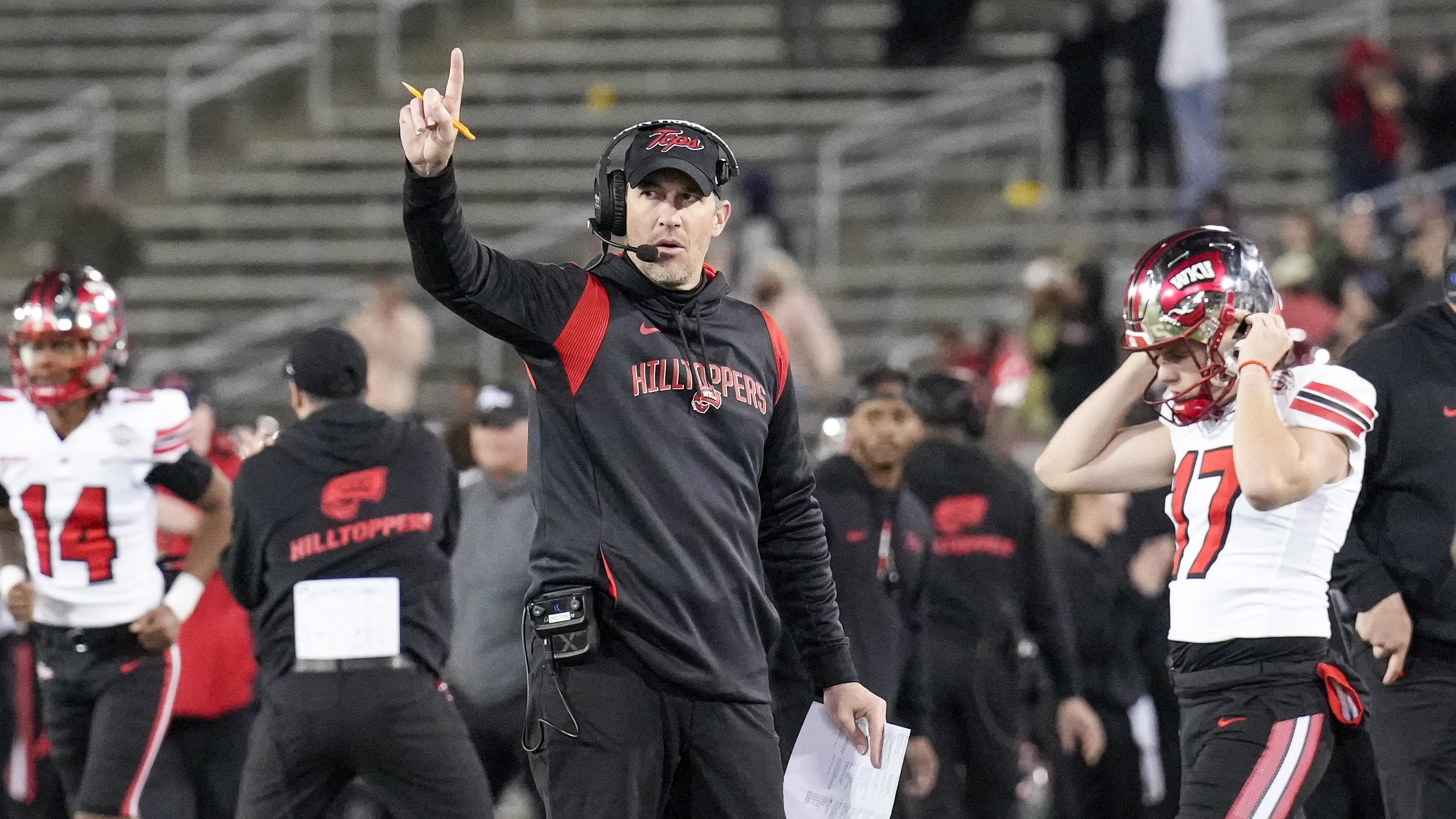SEC Commissioner Greg Sankey Again Suggests NCAA Tournament Expansion
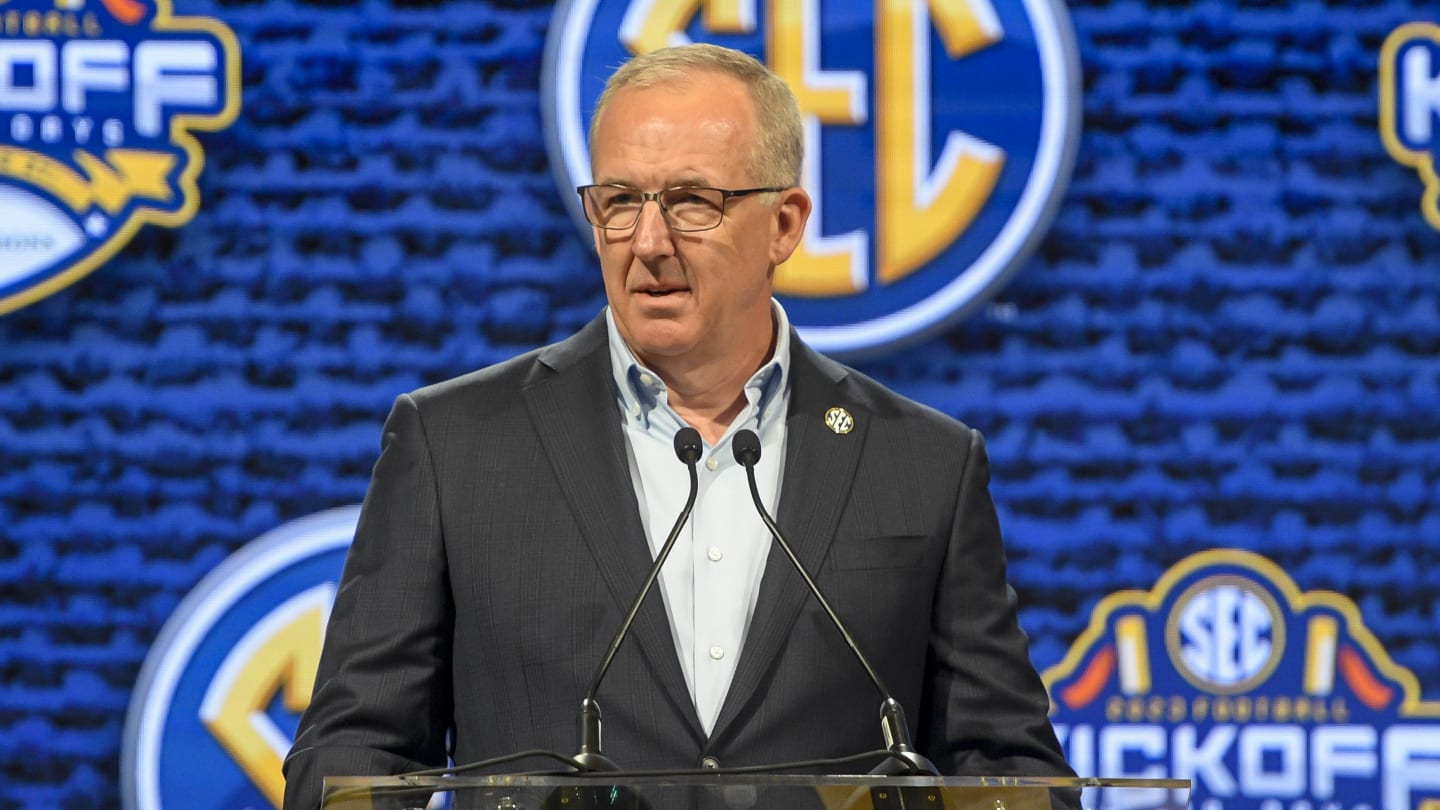
Commissioner Greg Sankey wrapped up the Southeastern Conference’s annual spring meetings with a window into his thinking in starting an advisory group with the Big Ten to study issues in college athletics—and with another tacit suggestion that the NCAA basketball tournaments be expanded.
Sankey has previously stated his willingness to explore tournament expansion as far back as two years ago. He cited North Carolina State’s Final Four run this year as a No. 11 seed as another example of why the current 68-team format should be reexamined.
“When we assign two 10 seeds to play each other and then you have a North Carolina State that goes to the Final Four, we’re taking two teams that could maybe make that same run and eliminating one of them up front, rather than playing 15 and 16 seeds,” Sankey said.
The present 68-team format matches the last quartet of at-large selections in “First Four” games in Dayton, Ohio, with the winners of those games advancing to the main bracket of 64. In those games this year, the Colorado State Rams defeated the Virginia Cavaliers and the Colorado Buffaloes eliminated the Boise State Broncos.
Sankey also cited the recommendation of greater championship inclusion by the ill-fated NCAA transformation committee that he co-chaired with Ohio athletic director Julie Cromer in 2022. The committee recommended 25% of the membership having access to championships in every sport. Currently, the 68-team NCAA tourney represents 18.7% of the 363-school Division I.
“So we’ve allowed Division I to grow, we have conferences solving their membership problems by inviting non–Division I members in,” Sankey said. “But we haven’t modified the bracket size. My common sense says we have to dig into that. Now, there are competitive issues, there are calendar issues, there are economic issues. But I do think March can be kept together. That doesn’t mean it stays exactly the same.”
Several leaders in college athletics have begun championing an expanded NCAA bracket. Industry sources have said an increase of the tourney in some form is virtually inevitable, despite considerable public pushback to the idea of changing something that is wildly popular in its current form.
But the power conferences—and specifically the SEC and Big Ten—have seemed increasingly open to considering a breakaway from the rest of Division I. The other 27 conferences in the division have been willing—albeit grudgingly in many cases—to placate the power leagues in order to maintain their place in the Big Dance.
“We have to recognize the differences that do exist within the group that pursues the brass ring of the tournament access opportunity,” Sankey said.
The commissioner also laid out how and why the SEC–Big Ten advisory group came to be introduced in February. Sankey initiated the idea after a series of frustrating meetings with other college leaders.
“I picked up the phone on a Saturday night [in January] and called [Big Ten commissioner] Tony Petitti because I had spent a Monday in Houston in a [College Football Playoff] meeting where we failed to accomplish much, in my opinion,” Sankey said. “I stayed for the first half of the national championship game, first time I ever left at halftime, you can understand why [the SEC had no team in the final game]. I had an early, early flight the next morning to go to Phoenix. I then spent the better part of two days in NCAA meetings where we accomplished little.
“We have some really big problems. It didn’t seem like we were solving the medium problems, and we’re not even talking about the really big issues. And I had thought for a long period of time that, if we agree, the two conferences could fulfill a leadership responsibility.”
Sankey reiterated that the joint undertaking “is not an alliance.” That referred to the doomed agreement between the Big Ten, Atlantic Coast Conference and Pac-12 that tried to join forces on a number of issues in 2021. That alliance was left in tatters when the Big Ten raided the Pac-12 for USC Trojans and UCLA in ’22.
Sankey said he came to a “realization that you’re not going to solve the big problems in big rooms filled with people. Because the realities are so different across Division I.” That was after a series of frustrations built up while working on multiple committees. Sankey said that when the transformation committee received a presentation from a group studying name, image and likeness policy, nobody spoke up.
“There’s times in the job when you’re a bully and times when you try to be a statesman,” he said. “And I try not to be a bully. But that day was enormously frustrating. … The opportunity was offered for questions, and I decided to just wait and see what people have to say. And nobody said a word. I jumped in and said, ‘You have to be kidding me.’ So I was a jerk. I try not to be a jerk all of the time, or most of the time, but sometimes you have to be a jerk. That informed that January thought [to call Petitti].”
